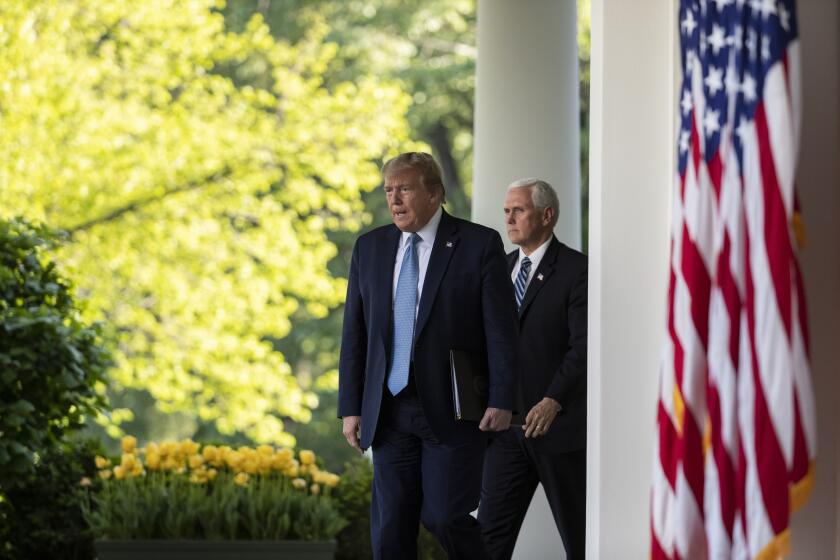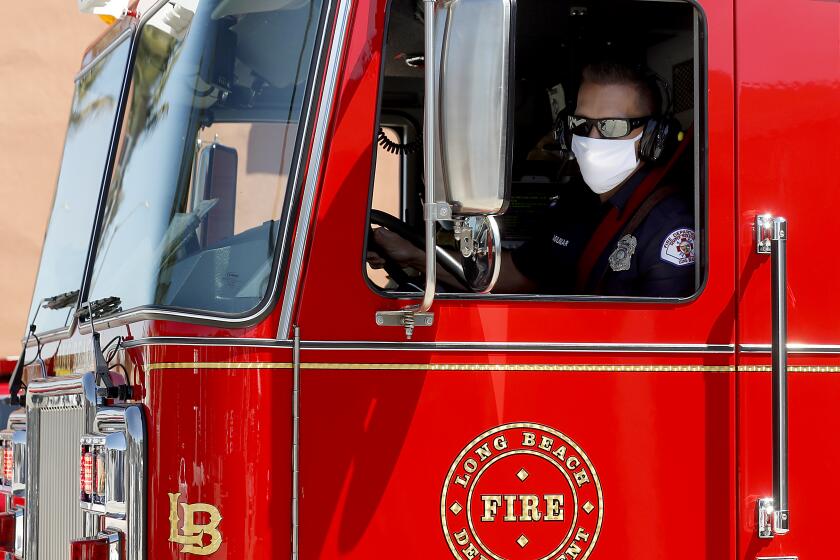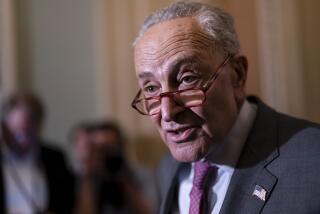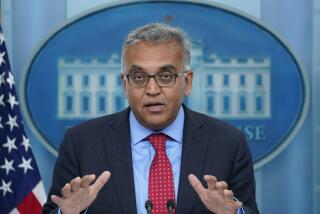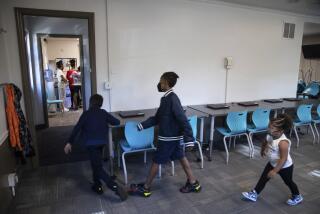U.S. coronavirus-related deaths top 32,000 as states ask Trump for economic aid
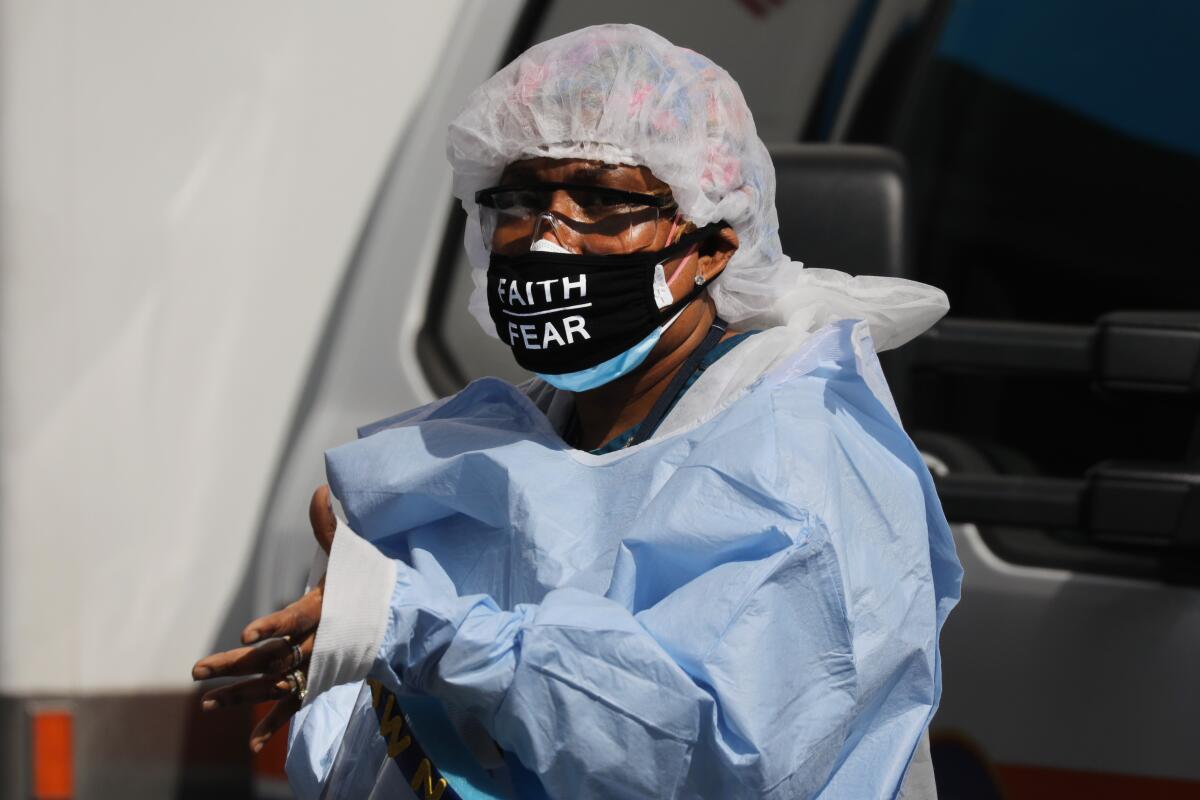
- Share via
With Congress haggling over the next stimulus package for an economy battered by the COVID-19 pandemic, officials in New York and New Jersey took aim at the federal government on Thursday, pleading for help.
No state has suffered more from the coronavirus outbreak than New York, which has more than 14,000 reported deaths. More than 11,000 of those fatalities have occurred in New York City, where Mayor Bill de Blasio said he has made another direct appeal to President Trump.
“I made clear to the president that his hometown needs him,” De Blasio said. “All New Yorkers, 8.6 million, are watching the White House right now to see if the president will lead.”
New Jersey Gov. Phil Murphy, who reported 362 new deaths in his state, delivered a similar message, saying he and other governors in the Northeast had requested as much as $150 billion in aid.
“While the CARES Act was a very good step in the right direction, we need a lot more direct cash assistance,” he said, referring to the previous stimulus package. “There’s just no way around that.”
Thursday saw national totals for COVID-19 continue to rise, with more than 650,000 confirmed cases and more than 32,000 deaths, according to Johns Hopkins University.
In northern Illinois, a nursing home became the latest such facility to report more than 20 deaths. Kansas City, Mo., Mayor Quinton Lucas extended his city’s restrictions until the middle of next month. “I’m not going to sacrifice the health of Kansas City,” he said. “This is the best option for us.”
In Wisconsin, Democratic Gov. Tony Evers’ extension of that state’s stay-at-home order until late May was met with anger from Republican state lawmakers, who threatened legal action and curbs on his power.
Trump announces guidelines for phased opening of states, starting with those relatively few COVID-19 patients.
Financial concerns weighed heavily on state and local governments in the hours before Trump unveiled national guidelines on easing restrictions and allowing businesses to reopen. The White House’s guidelines are only recommendations; stay-at-home orders have been issued by states and local governments.
In Richmond, Va., protesters gathered at the Capitol Square in the latest in a series of demonstrations against imposed lockdowns. In Louisiana, GOP House Minority Whip Steve Scalise pointed to resuming business, in a modified way, as the best solution to the money woes states are facing.
“It’s not a question of whether the disease is going to go away,” he said. “You’ve got to start taking precautions and learning to live with COVID-19.”
In an approach similar to what Eastern and West Coast states have taken, Michigan, Ohio, Wisconsin, Minnesota, Illinois, Indiana and Kentucky announced they will work cooperatively in easing restrictions.
With at least 22 million Americans filing for unemployment over the last four weeks, Massachusetts Gov. Charlie Baker reported that his state, like others, is scrambling to keep up with skyrocketing claims. “We’re going to continue to work this issue hard,” he said.
De Blasio and New York Gov. Andrew Cuomo focused on budget deficits created, in large part, by the loss of tax revenue with so many business shuttered. They suggested their state could serve as a bellwether for other parts of the country where the infection curve has yet to reach its peak.
“It defies understanding that the federal government is going to say, ‘We passed major pieces of legislation; pat us on the back,’” Cuomo said. “But you don’t fund state and local governments?”
The state deficit could reach $10 billion to $15 billion, he said. New York City’s shortfall is expected to exceed $7 billion. In addition to criticizing Trump, De Blasio singled out Senate Majority Leader Mitch McConnell (R-Ky.).
“If they had $58 billion for the airline industry,” De Blasio said, referring to the previous stimulus package, “I assure you they can find $7.5 billion for the nation’s largest city.” He said his city received $1.4 billion of the $2-trillion stimulus package. The state received $5 billion in direct aid.
Experts believe that widespread testing and contact tracing — which involves taking each new COVID-19 case, identifying everyone that person has been around and testing them for the virus — will be essential to returning to any type of normalcy in the U.S.
Louisiana Gov. John Bel Edwards talked about those needs. “We’re going to make mistakes,” he said of reopening the economy. “But the testing will allow us to know if we’ve made mistakes and make a course correction.”
Addressing this subject, Cuomo spoke with the White House on Thursday morning about states competing against one another on the open market for necessary test supplies.
“I understand this is a problematic area and the federal government is not eager to get involved in testing, but the plain reality here is we have to do it in partnership with the federal government,” he said. “There is no reason why you would have 50 states each trying to figure this out on their own.”
Public health officials reported 399 new coronavirus infections, bringing the county’s total to 10,854.
More to Read
Sign up for Essential California
The most important California stories and recommendations in your inbox every morning.
You may occasionally receive promotional content from the Los Angeles Times.

